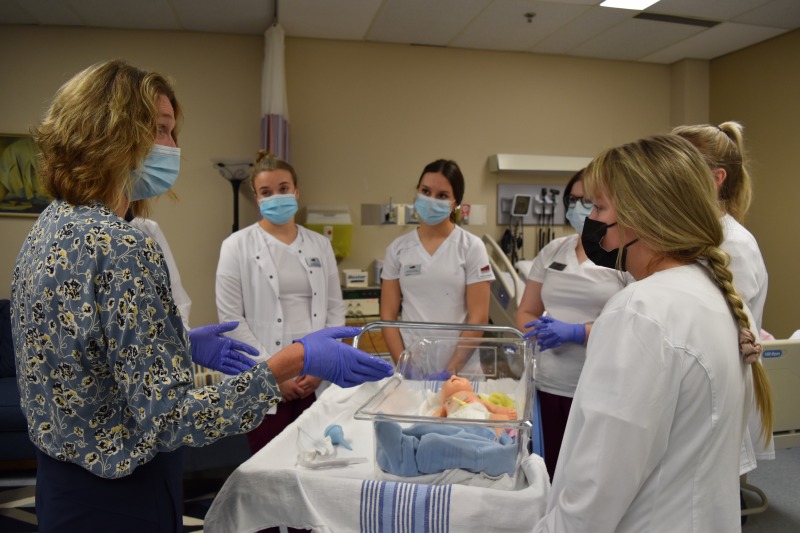Nursing degree change reflects science and art of practice.

When nursing students graduate in spring 2022, the parchments they receive will have a new degree title: bachelor of science in nursing.
The change from bachelor of nursing (BN) to bachelor of science in nursing (B.Sc.N.) was recently approved by Memorial’s Senate and the Board of Regents. It reflects a move consistent with the naming of nursing degrees across the country.
It’s recognition that Memorial’s program, offered at the Faculty of Nursing and Centre for Nursing Studies in St. John’s, and Western Regional School of Nursing in Corner Brook, includes the same emphasis on biological sciences and nursing research as other bachelor of science in nursing programs offered in Canada.
Science and art
”Our graduates have long been educated in the science and art of nursing, and our program emphasizes evidence-based practice, so therefore they need an understanding of nursing research and statistics,” said Dr. Alice Gaudine, dean, Faculty of Nursing.
“Our students also learn to develop qualities that are central to the practice of nursing — caring, compassion and empathy — as they build relationships with people of diverse backgrounds and experiences.”
The B.Sc.N.(Collaborative) program includes courses in anatomy and physiology, microbiology, biochemistry, pharmacology, pathophysiology and statistics.
“Our program emphasizes evidence-based practice, so therefore [students] need an understanding of nursing research and statistics.”
There’s also a strong focus on courses in therapeutic relationships that help students develop the skills and competencies needed to build relationships with individuals, families and communities.
For example, when senior students practise a complex simulation in the Cahill Nursing Simulation Room such as how to care for a child who has diabetes, they draw on experiences that reflect knowledge of glucose regulation, nutrition and patient education, as well as how to work with young children and their families.
Gold standard curriculum
Memorial’s nursing program is regarded as among the best in Canada and consistently achieves the gold standard in accreditation.
“We’re proud of the curriculum that we have developed together and offer collaboratively,” said Dr. Kathy Watkins, director, Centre for Nursing Studies, pointing out that courses are created, developed and shaped based on the latest in nursing knowledge and best practices.
“This foundation helps ensure our programs produce highly skilled nurses who can provide quality care to patients, clients and long-term care residents.”
Peggy Colbourne, director, Western Regional School of Nursing, echoes her colleagues.
“It’s an experiential program where students learn to apply their skills and knowledge in a variety of settings with diverse populations.”
Changing the degree title from BN to B.Sc.N. will also help in recruitment efforts, as perspective students looking at programs across the country are increasingly viewing the B.Sc.N. as the country’s program standard.
You can visit the Faculty of Nursing online to learn more about Memorial’s B.Sc.N.(Collaborative) program.